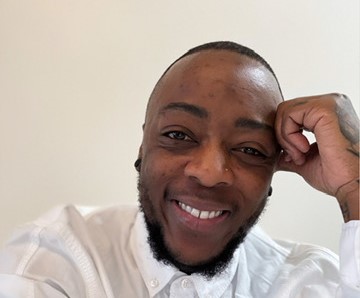
Meet Maurice Riley Case, the latest addition to McGill’s Equity Team. Formerly the manager of the Black Perspectives Office at Concordia, he replaces Karen Diop as the new Associate Director of Black Inclusion, Success, and Strategic Initiatives (BISSI).
Riley Case says he envisions his role as McGill’s Associate Director of BISSI as an opportunity to provide similar support while building on the foundation laid by Diop and others through the BISSI Working Group, including the recently extended McGill Action Plan to Address Anti-Black Racism.
“A big part of the job is listening to and respecting the work of others who’ve come before me, like the Dr. Kenneth Melville McGill Black Faculty and Staff Caucus,” he said. “I’m honouring and coming into alignment with the vision held by Black folks at McGill and the broader community, who are already working toward particular goals.”
Riley Case holds a Master of Education (MEd) from York University and a BEd and BA from the University of Toronto. His graduate research critically examined how institutional efforts to address anti-Black racism in the education system can sometimes end up overlooking the multiplicity of Black identities and experiences.
“Advocacy means recognizing we’re not just one thing. We often talk about the Black ‘community,’ but Blackness is not a monolith. We are many communities that hold many knowledges with a variety of lived experiences,” he explains.
“Here at McGill, we have, for example, students who are Black and Muslim, faculty and staff who are Black and LGBTQ+. When we advocate for Black flourishing, other equity-deserving groups benefit too.”
Riley Case was inspired to study institutional transformation by his time with Ontario’s Peel District School Board (PDSB). As an English teacher, he had become an informal resource for marginalized students who felt out of place in their predominantly white, affluent high school community.
“At the time, our department resources did not reflect the diversity or lived experiences of Black and other marginalized students. Many students gravitated toward me with concerns about their ability to flourish, so I acted as a source for conversation and support. We talked a lot — a lot!”
He began by championing inclusion for his students with the school’s administration. While initially labelled a disruptor, he eventually found allies among his colleagues. Notably, his students became more open and began to advocate for themselves, too.
He says the experience encouraged him to start his master’s degree in education.
“Not having the language to talk about the issues you’re facing frustrates your ability to advocate for others. Going through my MEd affirmed me and allowed me to create spaces not only for my own communities but also for other folks who had that hunger.”
Eventually, he was promoted centrally as a coordinator at the PDSB, where he was responsible for supporting administrators and educators district-wide in reflecting on and implementing the school board’s action plan to support Black flourishing.
He observes that recognizing those who came before is a critical element of effective advocacy and charges other McGillians to take up the task of recognizing and remembering their own history.
“McGill has a rich history of Black advocacy and activism. How do we keep that momentum of collective action going? We have to remind folks that we have always been here — and we still are.”
